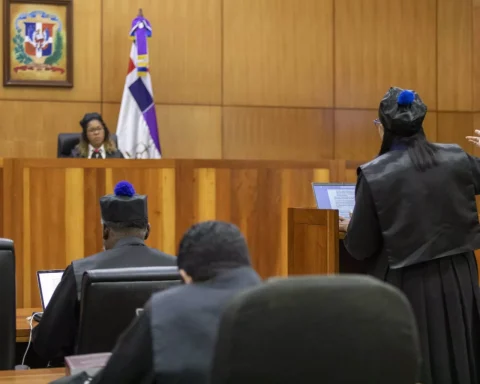Plagiarism among students according to their teachers
Academics were questioned about student practices and pointed out that 6 out of 10 “copy the summary of a book and hand it in as if they had read it completely”, include citations or bibliographical references without using them or having read them or appropriate them. internet information.
In addition, 5 out of 10 students copy texts, complete paragraphs, experiments, surveys, graphics as is or modified, presenting them as their own; they present their work again as if it were new; They mix various sources or texts copied from other authors or other students with changes, as if they were their own.
For academics “the main justification for the existence of plagiarism in students is ignorance. Dishonesty is mentioned in seventh place.”
According to the professors, 91% of the cases in theses or dissertations are detected, 30% very frequently and 61 frequently. And 95% in partial or final works.
But they estimated that in 84% of the cases they are sanctioned, 21% very frequently and 63% frequently.
Among the reasons why cases of plagiarism are not reported is because there are risks, in 45% of the cases fear that the authorities will protect the denounced person was mentioned and “it is a risk that is not worth taking”, 32% because the community does not believe it is serious because it is common.
In 36% of the cases they answered for three reasons: it is considered that it is better to carry out verbal criticism “to avoid getting into trouble”, there are networks of complicity or there is fear of reporting.
But in 10% of the responses it was commented that it is not done mainly because “dirty clothes should not be ventilated outside the faculty, school, institute or university” and in 21% that “it is not relevant, since in the university legislation is not a serious offense”.
And what about academic plagiarism?
As in the case of academics, it is also more serious for students to steal a wallet than to steal entire texts and appropriate authorship. But plagiarism is more serious than cheating on an exam.
Student responses indicated that 35% know of proven cases, not rumors, of academics who have plagiarized (5% very frequently and 35% frequently) in the case of academic papers or publications.
They affirmed that 48% of the cases they know of involved plagiarism of student work. And in 72% of cases the authorities noticed.
In addition, 24% valued that academics incur in practices because “they are dishonest and do not want to make their own effort” or “they are pressured to publish and maintain their level of economic stimuli” in 22% of cases.
Fear of reprisals (25%) and the risk if the authorities protect the accused (17%) are the main reasons for not reporting teachers who are detected.
Regarding plagiarism among students, of those interviewed, 55% said they knew the difference between copying and plagiarism.
And according to their answers, they agreed that 6 out of 10 of their classmates copy the summary of a book and hand it in as if they had read it in its entirety, and to the same extent they copy sentences or paragraphs from texts or from the Internet and change one or more words to present them as his own.
For 69% of the interviewees, plagiarism committed by students in partial or final works is very frequent or frequent; 69% in disclosure publications. In 66% of the cases they indicated that this behavior occurs in theses or dissertations.
However, in 87% of the cases –according to their answers- the teachers realize in part assignments very frequently (22%) or frequently (65%). In both types of frequency in 81% of cases in theses and dissertations. But they consider that in 78% there are sanctions in the case of partial works and 83% in dissertations and theses.
But among the main reasons, opinions predominated that students do not know how to do it (19%), it is easier to copy and paste than to do everything from scratch (16%) or they do not know that they should always cite (16%).
The survey showed that 65% would like to learn how to cite and use the information correctly in recognition of the original authors, but 76% estimated that “it is difficult because nobody teaches you how to cite well” and 46% learn it until they deliver their thesis or dissertation and 24% said they did not know what had to be done.
The survey showed the lack of knowledge among the student body of the obligation to cite the original sources. For academics, 91% affirm that they have ever taught about the utility of citing correctly in school texts; On the other hand, 50% of the students reported that this “is something they don’t learn until they hand in their dissertation or thesis.”

















